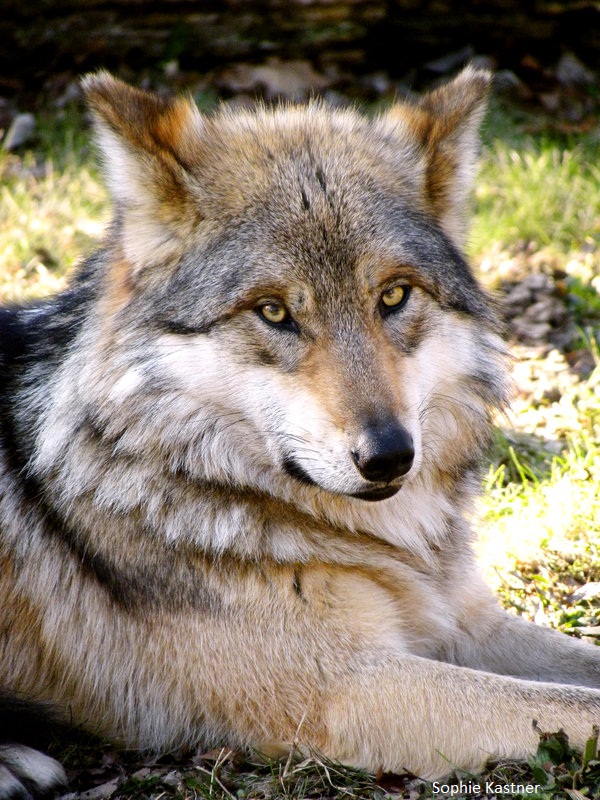15
Dec
In the News: Game Commission approves wolf plan releases

The New Mexico Game Commission approved the U.S. Fish and Wildlife Service’s final Mexican wolf recovery plan during a meeting Wednesday morning in Albuquerque, a move that some hope signals the start of a better relationship between the two groups.
“These are encouraging developments because it shows the state is finally supporting the recovery of Mexican gray wolves,” said Bryan Bird, director of the Southwest Program for Defenders of Wildlife.
Last year, the state’s Department of Game and Fish, which is overseen by the commission, sued Fish and Wildlife to block the planned release of wolves in the state.
That litigation is pending.
Defenders of Wildlife and others had previously sued Fish and Wildlife to create a new recovery plan, because it had not been updated since 1982.
The final plan was issued at the end of November.
The commission voted in August to support a draft of the plan.
“The New Mexico Department of Game and Fish is satisfied with the Mexican wolf recovery plan which includes measurable recovery criteria, biological and legal considerations,” the Department of Game and Fish said in a statement. “Key to our support is that consideration of the historical range of the Mexican wolf are taken into account, recognizing that approximately 90 percent of the subspecies’ historical habitat exists in Mexico.”
On Wednesday, the commission also approved Fish and Wildlife permits to allow the cross-fostering of up to 12 pups in New Mexico in 2018 and for some pups to be moved into captivity in New Mexico from Arizona.
Cross-fostering involves placing very young pups born in captivity into wild litters.
Sherry Barrett, Mexican wolf recovery coordinator with Fish and Wildlife, said litters shouldn’t be made up of more than eight pups.
So in the event the pups being introduced to a litter bring that number above eight, pups already in the den would need to be removed and taken to New Mexico, she said.
The commission also approved Fish and Wildlife’s request to move a female wolf currently in Arizona to New Mexico to be artificially inseminated.
The female is paired with her biological brother, and Fish and Wildlife are hoping to prevent the two from breeding.
The wolf’s lack of genetic diversity is one of the largest challenges in the subspecies’ recovery.
“This definitely will assist us in moving cooperatively forward with the state of New Mexico,” Barrett said.
On Wednesday, the commission also approved Fish and Wildlife permits to allow the cross-fostering of up to 12 pups in New Mexico in 2018 and for some pups to be moved into captivity in New Mexico from Arizona.
This article was published in the Albuquerque Journal.
~~~~~~~
While this is promising news in that it shows that the New Mexico Game Commission appears to have changed its’ position of not allowing wolf releases into New Mexico, we are still concerned that there are no releases of adults or families planned for 2018. Mexican wolf recovery can not be accomplished through cross-fostering alone.
Show your support for Mexican wolves with a Letter to the Editor today!
The letters to the editor page is one of the most widely read, influential parts of the newspaper. One letter from you can reach thousands of people and will also likely be read by decision-makers. Tips for writing your letter are below, but please write in your own words, from your own experience. Don’t try to include all the talking points in your letter.
Letter Writing Tips & Talking Points
- The U.S. Fish and Wildlife Service should include family groups in their release plan. Recovery won’t succeed unless they use all tools available to them, including the proven method of releasing family groups that include adult wolves.
- Cross fostering is one tool for improving the wild population’s genetic health, but it’s not enough. Many more wolves should be released this year from the hundreds in captive breeding programs. Rather than relying solely on cross-fostering, the Service should also release adults and families of wolves from captivity.
- Cross fostered pups will not contribute genetically to the wild population until they reach breeding age (2 years). The release of adults from the captive breeding program would result in a faster infusion of new genetics into the wild population.
- The wild population of Mexican wolves is at tremendous risk due to its small size and genetics. There are hundreds of wolves in the captive breeding program whose genes are not represented in the wild population.
- If captive pups were to be released with their parents, that would immediately put more genetically diverse, breeding wolves into the wild, instead of having to wait for the pups to reach breeding age and mate, which would take two or more years.
Make sure you:
“¢ Thank the paper for publishing the article
“¢ Submit your letter as soon as possible. The chance of your letter being published declines after a day or two since the article was published
“¢ Do not repeat any negative messages from the article, such as “so and so said that wolves kill too many cows, but”¦” Remember that those reading your letter will not be looking at the article it responds to, so this is an opportunity to get out positive messages about wolf recovery rather than to argue with the original article
“¢ Keep your letter brief, under 250 words
“¢ Include something about who you are and why you care: E.g. “I am a mother, outdoors person, teacher, business owner, scientific, religious, etc.”
“¢ Provide your name, address, phone number, and address. The paper won’t publish these, but they want to know you are who you say you are.
Submit your letter to the editor of the Albuquerque Journal.



